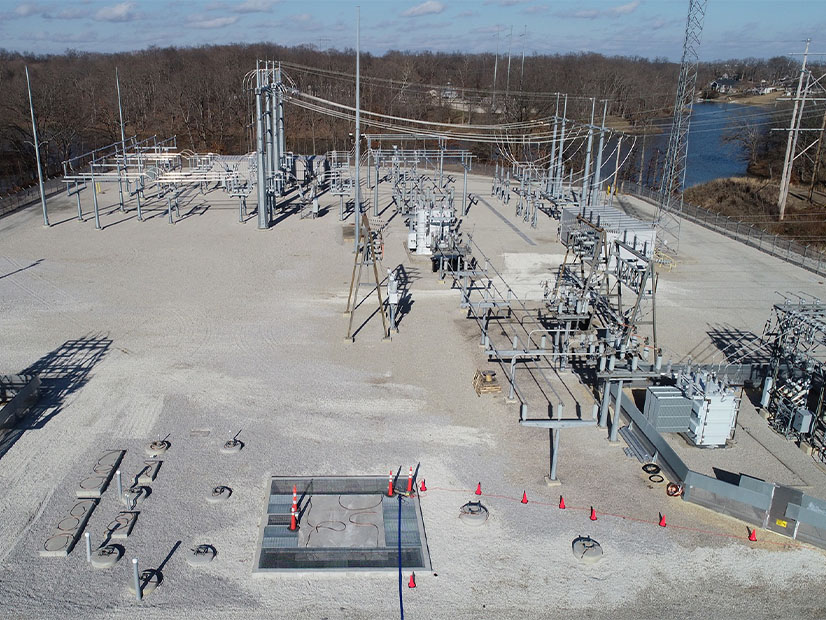Staff from the Illinois Commerce Commission last week put their own spin on an analysis showing how much Ameren’s switch to PJM could cost MISO.
ICC staff said a previous study from Charles Rivers Associates (CRA) concluding it would cost Illinois more than $3.3 billion from 2025 to 2034 if Ameren were to leave MISO and join PJM needs more context for the commission to consider. They qualified CRA’s cost analysis with potential benefits that the consulting firm didn’t ponder.
The perspective was part of the ICC’s initial comments under the notice of inquiry it opened this summer over the potential benefits of Ameren Illinois quitting MISO to join PJM. (See Illinois Regulators Open NOI on Ameren MISO Membership.)
Ameren commissioned CRA to complete the analysis at the direction of the ICC last year.
ICC staff said as a state with a retail access setup, Illinois may be a “better fit” with PJM’s true capacity market than under MISO’s residual capacity auction with “serious design flaws” and “wildly” fluctuating clearing prices. They said MISO’s balancing market design only allows load-serving entities to purchase relatively small quantities of capacity and is best suited to vertically integrated states that “exert more control over generation and explicitly plan to meet their reliability needs,” not for Illinois’ reliance on competitive markets to determine resource expansion.
“Such an auction design is not complementary to Illinois polices and is a detriment to Illinois ratepayers. Staff acknowledges that MISO is taking steps to address issues with its capacity market. However, such efforts are still in the discussion phase and will likely not be implemented for some time,” ICC staff wrote, noting the importance of MISO adopting a sloped demand curve in its auction.
Staff said unless MISO corrects its Planning Resource Auction, it could lead to continued price separation in Southern Illinois’ Zone 4.
ICC staff also said benefits in the CRA study could have been contemplated on a longer-term horizon than 10 years since MISO itself uses 20-year future scenarios to plan transmission.
“Staff now believes that, while reasonable to assess initial impacts, this time frame may not capture all the benefits of new transmission over time and undervalues transmission assets,” staffers wrote. “… If the benefits of transmission are considered over a longer and more realistic time frame, costs that are prohibitively high in the Ameren study could potentially be mitigated.”
ICC staff said the CRA study discounts the reliability risks of Ameren remaining in MISO. They said MISO is set to experience significantly more solar and storage in its generation fleet than PJM. With that portfolio mix, MISO could more easily exhaust reserves during high demand sunrises and sunset periods, they said.
“Overall, the results point toward PJM having a more resilient system as compared to MISO, which would be a benefit in the join PJM case. This is a significant result and the inability of the MISO market to prevent unserved demand may be one of the primary reasons for considering a change in RTO participation,” staff said.
Staff said CRA might be overestimating the impact of increased capacity costs under the PJM market. They said although the PJM market’s sloped demand curve would cause Zone 4 to procure more capacity — at more expensive prices because of PJM’s annual capacity product — the higher capacity prices could incentivize developers to build new generation or owners to delay retirements and ultimately lower capacity prices.
Finally, ICC staff said the study also assumed that because of their interdependence on Ameren, all utilities in MISO’s Zone 4 will either stay in MISO or join PJM. However, staff said it’s not a given that City Water Light and Power and the Southern Illinois Power Cooperative will follow Ameren’s lead.
MISO declined to comment on the ICC staff’s opinion of market shortcomings. The grid operator similarly had no comment when the ICC opened the notice of inquiry.




